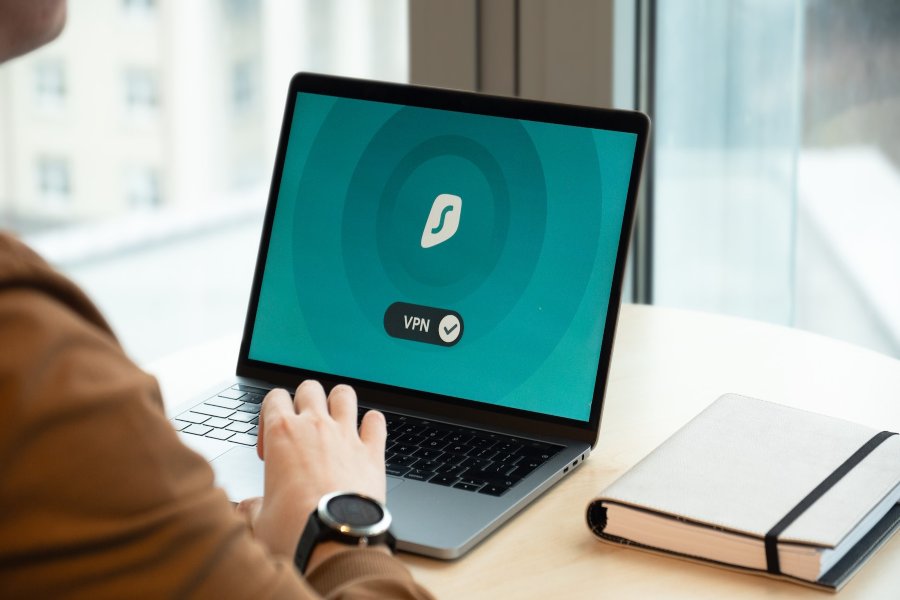As the world of sports betting expands into the digital realm, many enthusiasts face geographic restrictions and content limitations imposed by online platforms. In response, Virtual Private Networks (VPNs) have emerged as a potential solution to circumvent these barriers and access sports betting websites from anywhere in the world. However, with this convenience comes concerns about legality, security risks, and potential repercussions. This article delves into whether you can use a VPN to sports bet, exploring the benefits, risks, and ethical considerations of this practice. By examining the legal landscape and offering insights from experts, we aim to equip readers with the necessary knowledge to make informed decisions and engage responsibly in the world of online sports betting.
Can you use a VPN to sports bet?
Yes, you can use a VPN to sports bet, but it’s essential to understand the implications and potential risks involved. A VPN allows you to bypass geographic restrictions and access sports betting websites that might be blocked in your region. However, using a VPN for this purpose may violate the terms of service of the betting platform, leading to account suspension or closure. Moreover, the legality of using VPNs for sports betting varies from country to country, and engaging in illegal gambling could have legal consequences. If you choose to use a VPN for sports betting, research the laws in your region, select a reputable VPN provider, and practice responsible gambling to avoid any adverse outcomes.
Understanding Vpn And How It Works
A Virtual Private Network (VPN) is a technology that creates a secure and private connection over the internet, allowing users to access resources and browse the web in a more private and encrypted manner. Here’s a breakdown of how a VPN works:
When you connect to a VPN, all the data transmitted between your device (computer, smartphone, etc.) and the VPN server is encrypted. Encryption means the data is converted into a code, making it unreadable to anyone who might intercept it during transit.
The VPN service provider operates a network of servers in different geographic locations worldwide. When you connect to a VPN, your internet traffic is routed through one of these servers.
Every device connected to the internet has an IP address, which acts like a digital identifier. When you use a VPN, your IP address is replaced with the IP address of the VPN server you are connected to. As a result, websites and online services you visit see the VPN server’s IP address instead of your own.
Transmitting data between your device and the VPN server is called tunneling. This data travels through an encrypted tunnel, ensuring it remains private and secure from potential eavesdroppers, such as internet service providers (ISPs) or hackers.
Since your internet traffic appears to originate from the VPN server’s location, you can bypass geographic restrictions imposed by websites or online services. This allows you to access content that might be blocked in your location.
A VPN enhances privacy because your internet activity is shielded from your ISP and other third parties. It is beneficial when connecting to public Wi-Fi networks, protecting your data from potential snooping and hacking attempts.
The Legality Of Online Sports Betting And Vpn Usage
The legality of online sports betting varies significantly from one country or region to another. Some countries have fully legalized and regulated online sports betting, while others have strict laws prohibiting online gambling. Additionally, there are countries where the legality of online sports betting falls into a legal gray area, making it a complex and ever-evolving landscape.
- In some countries, online sports betting is fully legal and well-regulated. These countries have established licensing and regulatory frameworks to govern online gambling operators, ensuring consumer protection, fair play, and responsible gambling. Examples of such countries include the United Kingdom, Australia, and several European nations.
- In contrast, some countries have implemented stringent laws prohibiting online gambling, including sports betting. These jurisdictions may view online gambling as threatening social order, public health, or religious beliefs. Countries in the Middle East, certain Asian nations, and some U.S. states fall into this category.
- Several countries have not explicitly legalized or prohibited online sports betting, leading to a legal gray area. In these regions, the legal status of online gambling may be ambiguous or open to interpretation. Individuals in these countries may choose to bet on international sports betting platforms that operate offshore, but doing so may only be partially legal.
Impact Of Vpn Usage On Online Sports Betting Legality:
Using a VPN to sports bet can add another layer of complexity to the legality issue. VPNs allow users to circumvent geo-blocking measures and access online sports betting platforms from countries where it may be restricted or illegal. However, the legality of using a VPN for sports betting depends on several factors:
- Users must consider the laws of their own country regarding online sports betting and VPNs. In some regions, using a VPN for online gambling may be considered illegal, leading to potential legal consequences.
- Online sports betting platforms typically have terms of service that users must abide by. Many platforms explicitly prohibit the use of VPNs to access their services. If a user violates these policies, their account may be suspended or closed, and any funds in the account could be forfeited.
- The jurisdiction where the VPN provider is based can also impact the legality of VPN usage for sports betting. If the VPN provider operates in a country where online gambling is illegal, users may face potential risks or legal implications.
- Apart from legal concerns, there are ethical aspects to consider. Using a VPN to access sports betting platforms in regions where it is illegal can be seen as unethical and against the spirit of local laws and regulations.
Benefits Of Using A Vpn For Sports Betting
Using a VPN (Virtual Private Network) for sports betting offers several benefits, particularly for users facing geographic restrictions and concerned about online privacy and security. Here are the key advantages of using a VPN for sports betting:
Bypassing Geographic Restrictions:
One of the primary benefits of using a VPN is its ability to bypass geographic restrictions imposed by online sports betting platforms. Many sports betting websites and apps restrict access to specific regions due to licensing agreements and regulatory requirements. With a VPN, users can connect to servers in different countries, effectively changing their virtual location and accessing sports betting platforms that might be blocked in their physical location.
Access to Better Odds and Promotions:
Using a VPN to access sports betting platforms in different regions, users may find better odds, promotions, and bonuses unavailable in their home country. Some regions offer more competitive odds and generous promotions, potentially increasing the value and profitability of sports bets.
Secure Betting on Public Wi-Fi:
When placing sports bets on public Wi-Fi networks, there is an increased risk of data interception by hackers and malicious actors. Using a VPN encrypts your internet traffic, ensuring that your sensitive information, such as login credentials and financial details, remains protected even when using unsecured public Wi-Fi.
Avoiding ISP Throttling:
In some regions, internet service providers (ISPs) may throttle internet traffic related to online gambling, leading to slower connection speeds and a less enjoyable betting experience. A VPN can help users circumvent ISP throttling, ensuring a smoother and faster betting process.
Enhancing Online Privacy:
Using a VPN for sports betting enhances online privacy by preventing ISPs and other third parties from monitoring and tracking your internet activities. The encrypted connection the VPN provides keeps your betting history and preferences private, reducing the risk of targeted advertisements and unwanted tracking.
Multiple Betting Accounts:
In regions with legal and licensed online sports betting, users may be allowed to create multiple betting accounts on different platforms. Using a VPN, users can easily manage and access these accounts from a single location, streamlining their sports betting experience.
Access to Live Streaming:
Some sports betting platforms offer live streaming of sports events to their users. However, access to live streaming may be restricted in certain regions. Using a VPN, users can access platforms that provide live streaming services, allowing them to watch the events they bet on in real time.
Risks And Drawbacks Of Sports Betting With A Vpn
While using a VPN (Virtual Private Network) for sports betting can provide certain benefits, it also comes with risks and drawbacks that users should be aware of. These include:
Account Suspension or Closure: Many online sports betting platforms explicitly prohibit using VPNs to access their services. If a platform detects a VPN user, it may suspend or close their account. This could lead to losing funds, accumulated winnings, and potential bonuses or promotions associated with the account.
Loss of Funds and Winnings: Suppose a sports betting platform discovers a user has used a VPN to access its services from a restricted region. In that case, it may confiscate the user’s funds and winnings, citing a violation of the platform’s terms and conditions. This can result in financial losses for the user.
Legal Consequences: In certain jurisdictions, using a VPN to access online sports betting platforms may be considered illegal, especially if online gambling is prohibited or heavily regulated. Engaging in illegal online gambling can lead to legal consequences, including fines or other penalties.
Security Risks of Unreliable VPN Providers: Some VPN providers offer different levels of security and privacy protection. Using a poorly managed or unreliable VPN service can expose users to potential security risks, such as data leaks, malware injections, and the possibility of their internet traffic being intercepted by malicious actors.
Lack of Consumer Protection: When using a VPN for sports betting, users may find themselves outside the jurisdiction of their country’s consumer protection laws. If they encounter issues with the betting platform or the VPN provider, obtaining recourse or support may be challenging.
Unintentional Violation of Terms and Conditions: In some cases, users may unknowingly violate the terms and conditions of online sports betting platforms while using a VPN. For example, they might accidentally access restricted features or engage in prohibited activities without realizing it, leading to account-related issues.
Ethical Considerations: Using a VPN to access sports betting platforms in regions where it is restricted or illegal can be seen as ethically questionable. It can be perceived as an attempt to bypass local laws and regulations, potentially undermining efforts to ensure responsible gambling practices and protect vulnerable individuals from the risks of gambling addiction.
Final Thoughts
In summary, using a VPN (Virtual Private Network) for sports betting can be a double-edged sword, offering benefits and risks. On the one hand, a VPN allows users to bypass geographic restrictions, access better odds, and enhance online security while betting. It can provide an added layer of privacy and protect sensitive information, especially when using public Wi-Fi networks. Significant risks include the potential for account suspension or closure by betting platforms, loss of funds and winnings, and even legal consequences, particularly in regions where online sports betting or VPN usage is prohibited. Moreover, the unethical use of VPNs to access restricted betting platforms can raise moral concerns and undermine the principles of responsible gambling.
FAQ’s
Q: What is a VPN, and how does it work?
A: A VPN (Virtual Private Network) is a technology that creates a secure and encrypted connection over the internet. It works by routing your internet traffic through a VPN server, encrypting the data in transit, and replacing your IP address with the IP address of the VPN server. This process ensures that your online activities remain private and protected from potential eavesdroppers, such as hackers or your internet service provider.
Q: Is sports betting with a VPN legal?
A: The legality of sports betting with a VPN varies depending on the laws and regulations of your country or region. In some places, online sports betting is fully legal and regulated, and using a VPN to access betting platforms may not be an issue. However, in regions where online gambling is prohibited or heavily regulated, using a VPN for sports betting can be considered illegal and may lead to account suspension, closure, or even legal consequences.
Q: What are the benefits of using a VPN for sports betting?
A: Some benefits of using a VPN for sports betting include bypassing geographic restrictions to access betting platforms, obtaining better odds and promotions from different regions, enhancing online privacy and security while betting and accessing live streaming of sports events.

























Leave a Reply